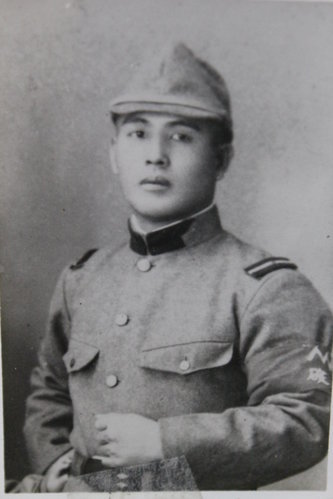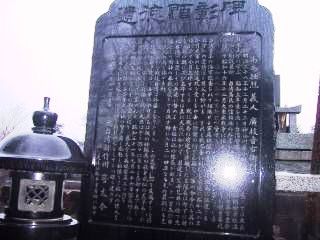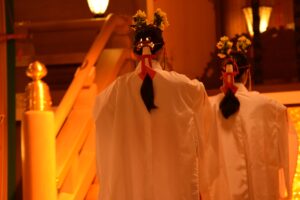This is not merely a war story—it is the story of a miracle born from the resonance of hearts. In the chaos of battle, one police officer chose to give his own life so that two thousand of his men could live. What saved them was not just his courage, but the deep trust and connection that transcended rank and nationality. That resonance still echoes today, across generations, in both Taiwan and Japan.

In prewar Japan and Taiwan, police officers were seen as guardians of the community—respected figures who combined strength with compassion.
Many came from former samurai families, embodying integrity, discipline, and an unwavering sense of justice.
In small towns and villages, the local “kōban” officer was often the most trusted person in the community, and this was equally true in Taiwan.
Among Taiwan’s indigenous groups, such as the Takasago people, police officers were regarded almost as protectors or guardian spirits.
This respect was rooted in the role they played under Japanese administration: not only maintaining public order but also raising the educational and cultural level of the local population to match that of the mainland.
One such officer is still honored as a “god” in Taiwan today.
His name was Otoemon Hiroeda.
In 1930, after passing the incredibly competitive examination for the Taiwan Government-General Police—at a time when the acceptance rate was one in a hundred—he was stationed in Shinchiku Prefecture.
Known for his sense of honor, kindness, and fairness, Hiroeda embodied the spirit of the warrior in his role as a community officer.
By 1942, he had risen to the rank of inspector and was appointed commander of the Taiwanese Naval Patrol Corps, a force of two thousand young Taiwanese men.
In December 1943, they were deployed to Manila, Philippines, tasked with logistical support and supply operations.
Amid grueling conditions, Hiroeda trained and encouraged his men, not from behind but always at the front, sharing their hardships.
What bound them together was not merely military order—it was a mutual trust so deep that the men would willingly follow him anywhere.
By February 1945, the war had turned against Japan.
American forces landed near Manila, ammunition ran out, and the dreaded order came: prepare for a suicidal attack using anti-tank lunge mines.
This meant certain death.
Hiroeda had a wife and three children in Taiwan.
Every one of his men also had family waiting for them.
Determined to save them, he secretly negotiated with the Americans through his platoon leader, Liu Wei-tian.
The next day, standing before his assembled men, he said:
“You have fought bravely for your country.
But you will not die needlessly.
In Taiwan, your families are waiting for you.
I am Japanese—I will take full responsibility.
Live, even if it means becoming prisoners.”
Tears flowed silently.
In that moment, the soldiers felt his words not as an order, but as the resonance of his heart with theirs.
It was a connection beyond rank, beyond nationality—a human bond forged in the face of death.
After the speech, Hiroeda entered a bunker alone, placed his pistol to his head, and took his own life.
It was February 23, 1945. He was 40 years old.
Because of his decision, all two thousand men survived as prisoners of war and returned home to Taiwan alive.
In the postwar years, his former subordinates in Shinchiku formed the Police Friends Association and enshrined him at Gonge-dō Temple on Lion’s Head Mountain, a sacred Buddhist site in Taiwan.
They also donated a memorial monument in Hiroeda’s honor to Kōkyō-ji Temple in Toride, Ibaraki Prefecture, Japan.
In 1983, former platoon leader Liu Wei-tian traveled to the Philippines to collect soil from the place where his commander had died.
He brought it to Hiroeda’s widow, Fumi, in Toride.
When she later passed away, her spirit tablet was placed alongside her husband’s at the Gonge-dō Temple in Taiwan, where both are still honored today.
Otoemon Hiroeda’s act was not simply one of sacrifice.
It was the culmination of a deep resonance between leader and followers, a connection that turned obedience into unity, and duty into shared humanity.
That echo has never faded.
It continues to cross borders and generations, reminding us that true leadership is not about commanding lives—it is about valuing them, and about the bonds that make us willing to stand for each other.

Memorial monument to Commander Otoemon Hiroeda at Kōkyō-ji Temple, honoring his sacrifice and legacy.


